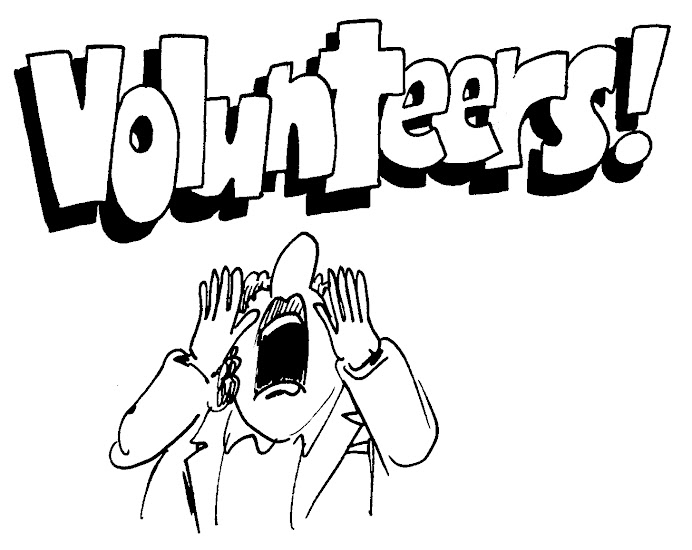Jean and Gary are walking for Autism and have mentioned that in the past two years fundraising dollars are becoming scarce. They need your help!
If you know someone who has Autism or personally have a family member with Autism then you know how important these fundraising dollars are. Spread the word by passing this Blog on to those who may be willing to contribute to this cause.
In addition to knowing Jean and Gary who have a lovely daughter Kayla who was diagnosed with Autism I also have a 16 year old cousin Joey who has severe Autism we have watched him since he was 2 years old fade, it's painful to see but his loving parents have been very active in trying to do all that is needed to help him learn to speak, and keep him healthy. He has a special diet that they adhere to and now he even goes to High School with special Aids and a very supportive twin sister he is able to attend and from what we are told he loves it!
https://www.kintera.org/faf/dono...
You can volunteer your time or donate money. Here is some information on Autism:
The Following Is a Fact Sheet on Autism from the National Institutes of Health
Autism (sometimes called “classical autism”) is the most common condition in a group of developmental disorders known as the autism spectrum disorders (ASDs). Autism is characterized by impaired social interaction, problems with verbal and nonverbal communication, and unusual, repetitive, or severely limited activities and interests. Other ASDs include Asperger syndrome, Rett syndrome, childhood disintegrative disorder, and pervasive developmental disorder not otherwise specified (usually referred to as PDD-NOS). Experts estimate that three to six children out of every 1,000 will have autism. Males are four times more likely to have autism than females.
What are some common signs of autism?
There are three distinctive behaviors that characterize autism. Autistic children have difficulties with social interaction, problems with verbal and nonverbal communication, and repetitive behaviors or narrow, obsessive interests. These behaviors can range in impact from mild to disabling.
The hallmark feature of autism is impaired social interaction. Parents are usually the first to notice symptoms of autism in their child. As early as infancy, a baby with autism may be unresponsive to people or focus intently on one item to the exclusion of others for long periods of time. A child with autism may appear to develop normally and then withdraw and become indifferent to social engagement.
Children with autism may fail to respond to their name and often avoid eye contact with other people. They have difficulty interpreting what others are thinking or feeling because they can’t understand social cues, such as tone of voice or facial expressions, and don’t watch other people’s faces for clues about appropriate behavior. They lack empathy.
Many children with autism engage in repetitive movements such as rocking and twirling, or in self-abusive behavior such as biting or head-banging. They also tend to start speaking later than other children and may refer to themselves by name instead of “I” or “me.” Children with autism don’t know how to play interactively with other children. Some speak in a sing-song voice about a narrow range of favorite topics, with little regard for the interests of the person to whom they are speaking.
Many children with autism have a reduced sensitivity to pain, but are abnormally sensitive to sound, touch, or other sensory stimulation. These unusual reactions may contribute to behavioral symptoms such as a resistance to being cuddled or hugged.
THEIR WALK INFORMATION:
Please join me in my fight to make a difference in the lives of the more than 1 million Americans living with autism today.
I am participating in Walk Now for Autism to help find a cure for autism.Please join me in my fight as I raise $ 2000.00 to help fund essential research. I will be walking on May 16, 2009 at Soldier Field and would like you to support those affected by autism. Autism is the second most common developmental disorder in the United States affecting one in every 150 children born today. Despite some promising discoveries, the cause of autism is unknown and a cure does not exist. Research is crucial. Every 20 minutes another child is diagnosed with autism. Not only must we find ways to improve the quality of life for children and adults with autism, but we also must find a cure, and soon.
Walk Now for Autism is our chance to make a difference in the fight against autism by raising money for autism research and heightening public awareness. Please join me in my fight as I raise money to help fund essential research. You can donate to Walk Now for Autism and/or join my team online using the links at the bottom of this page. Donations can also be mailed to Autism Speaks using the donation form located on my page or send me a check made out to Autism Speaks.
Thank you for taking an important step in the fight against autism.
Donations are tax deductible to the fullest extent allowed by law.
Autism Speaks 501 (C)(3) Tax Id #: 20-2329938
Matching gift program: Many companies provide their employees with matching gifts. Please consult your employer on its matching gift guidelines and attach matching gift forms accordingly.
"https://www.kintera.org/faf/don orReg/donorPledge.asp?ievent=288794 &lis=1&kntae288794=A03FCEFFA54747B4 A4882083B0D9DBEE&supId=177478309"
Team: Special K
Gary Henikman
Thank you for your help!!
For more information feel free to contact me at Leslie@LovetoPromote.com
Leslie Prohaska









